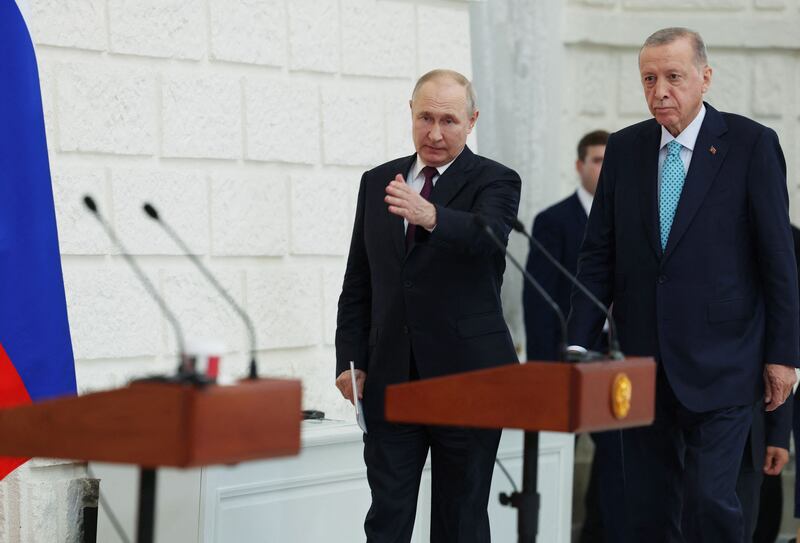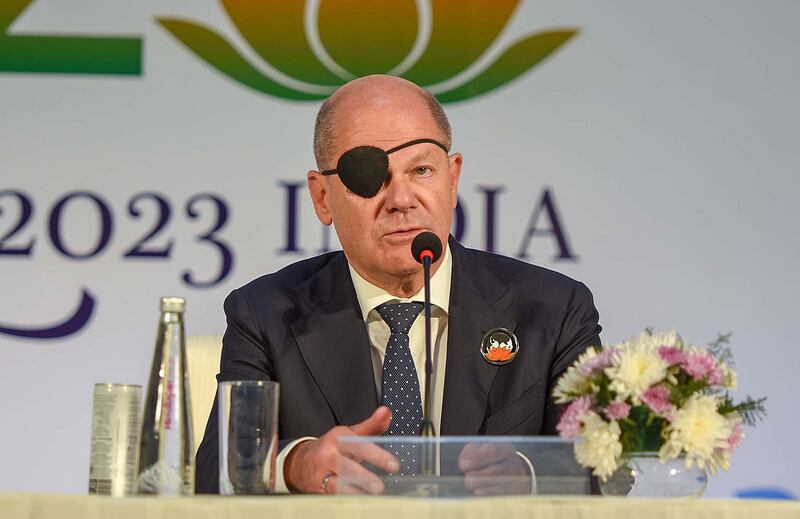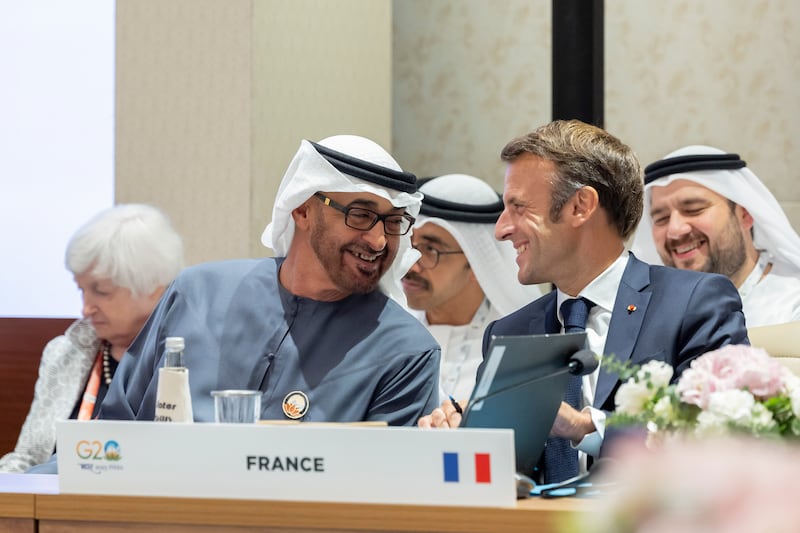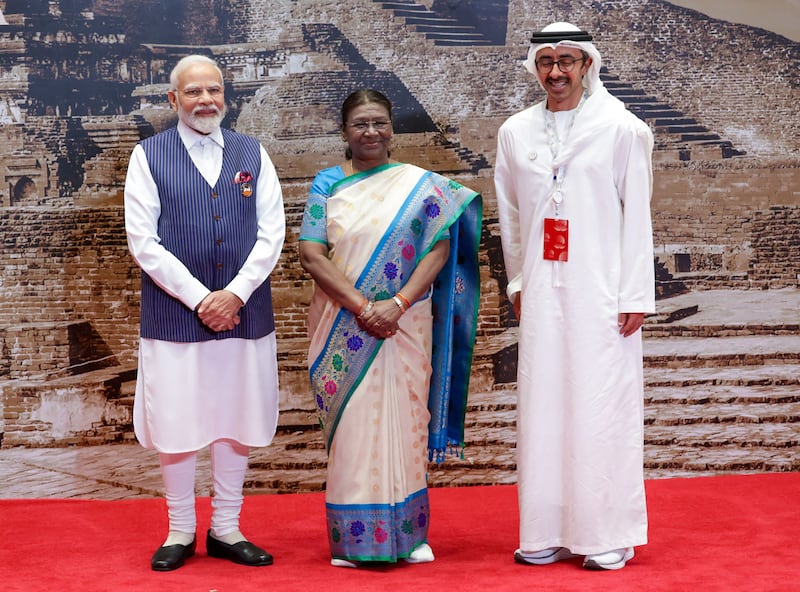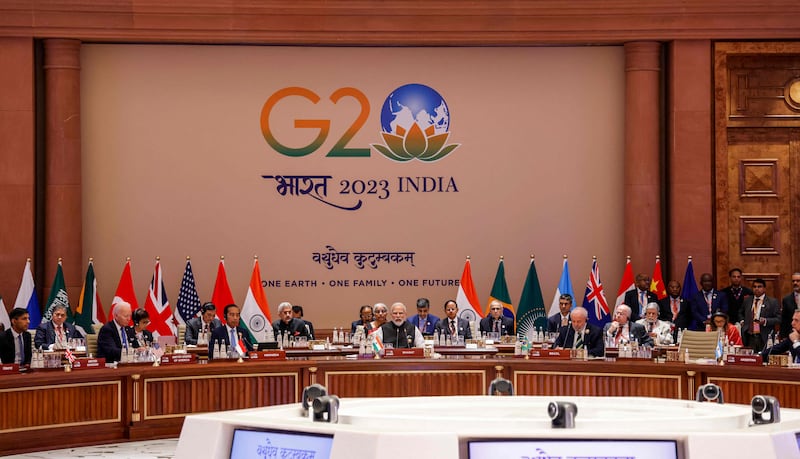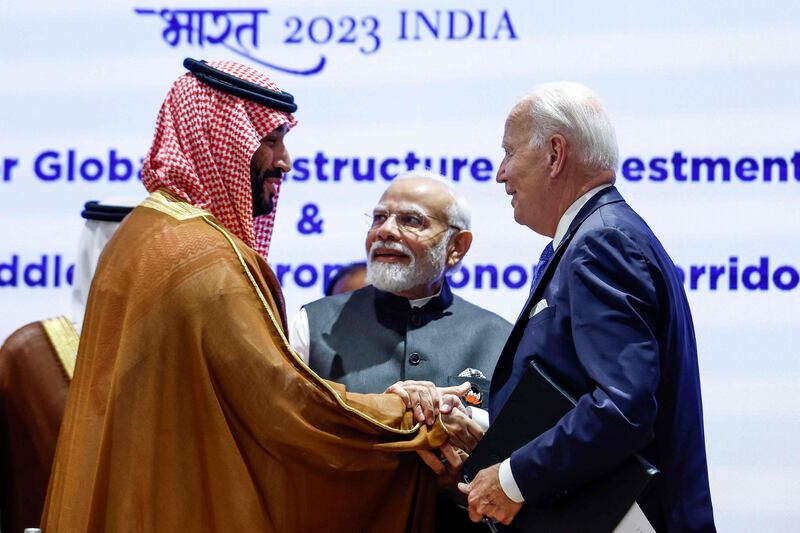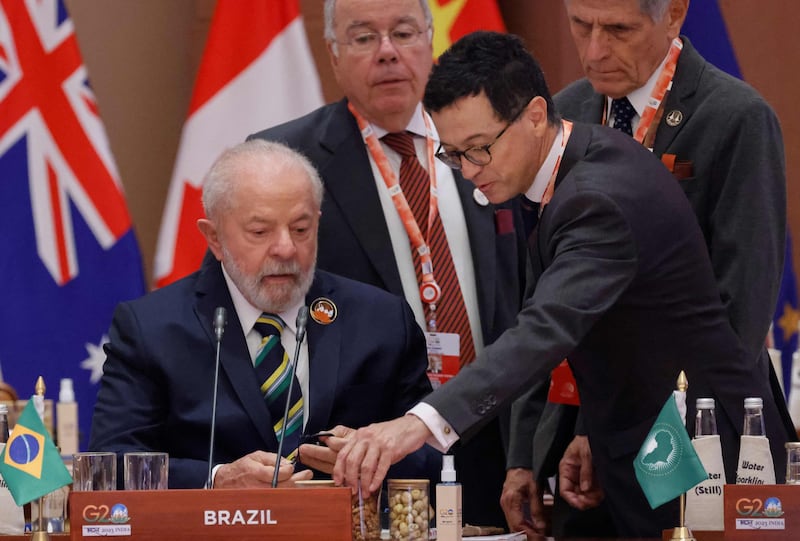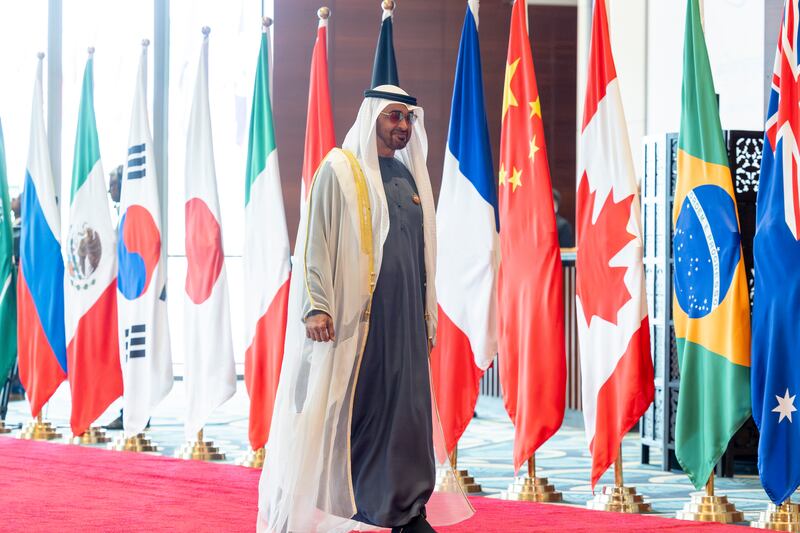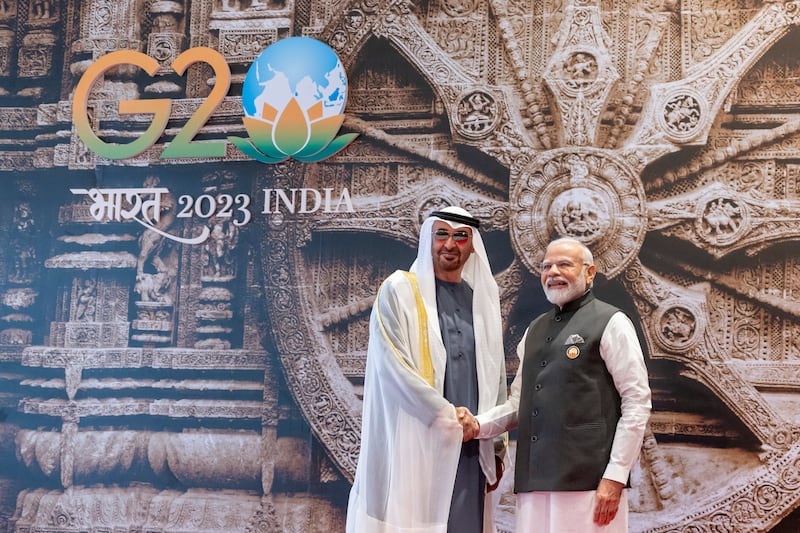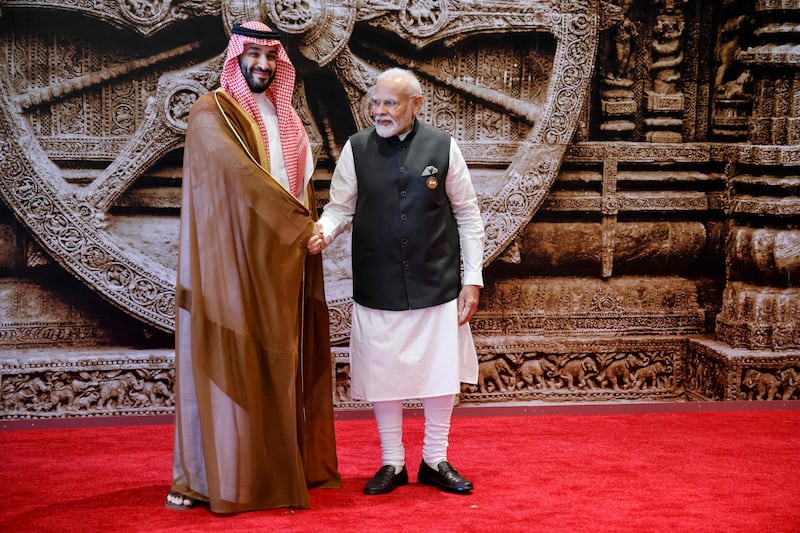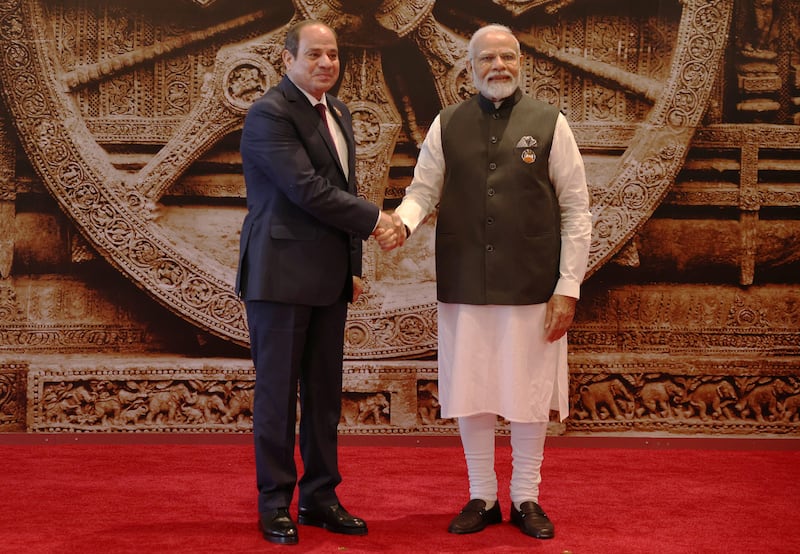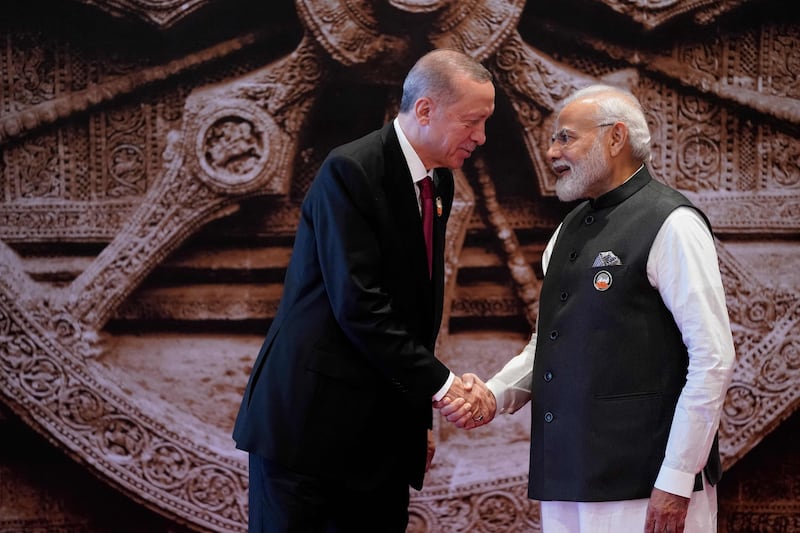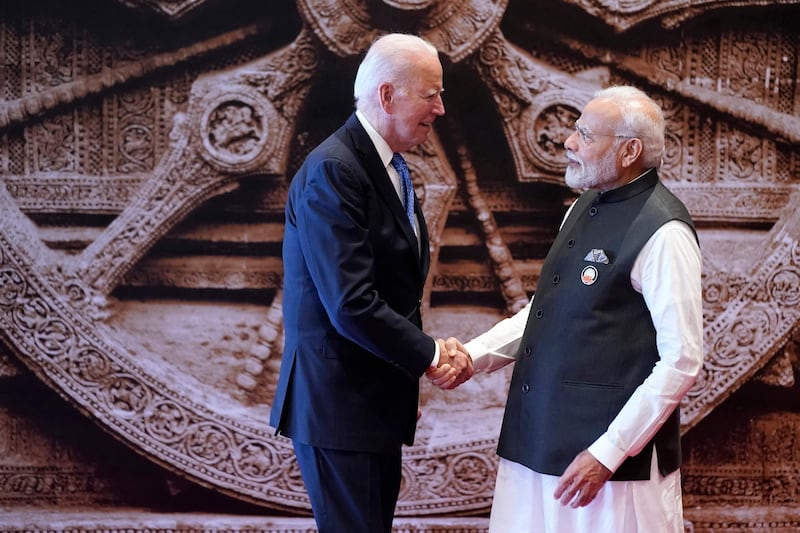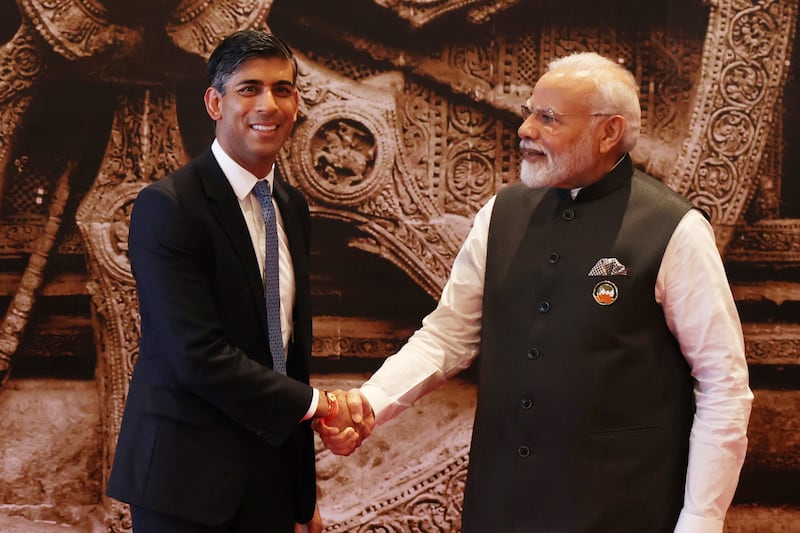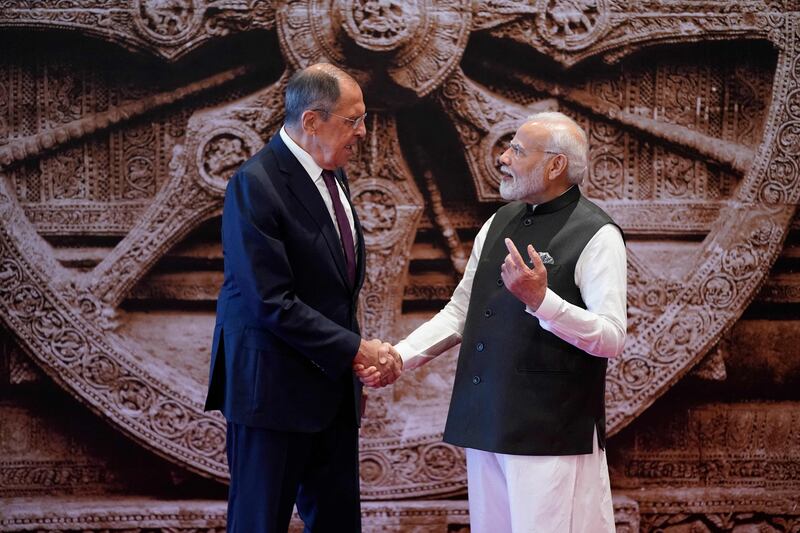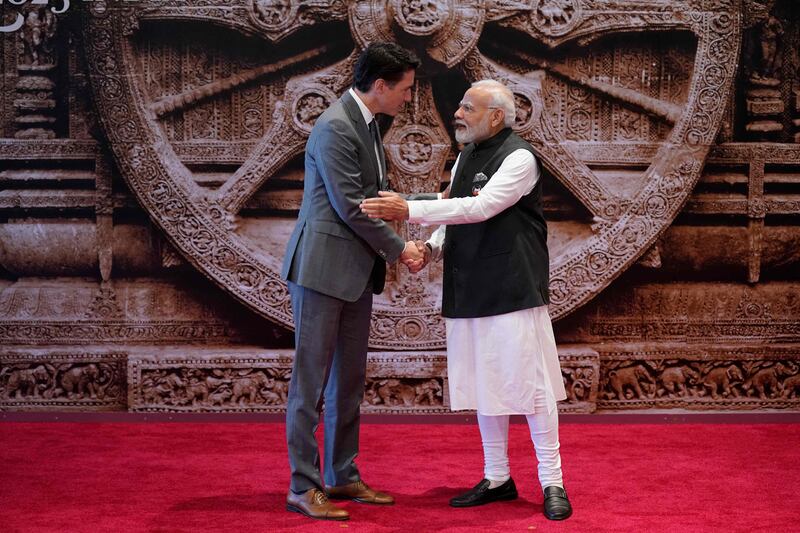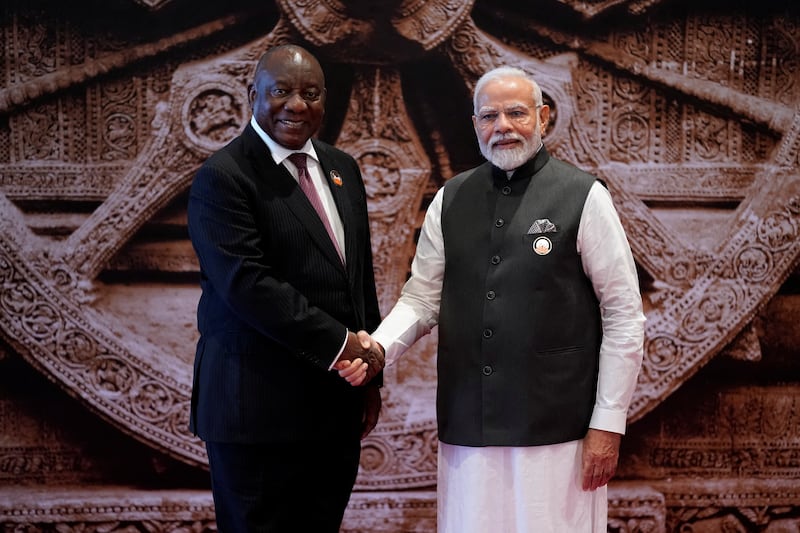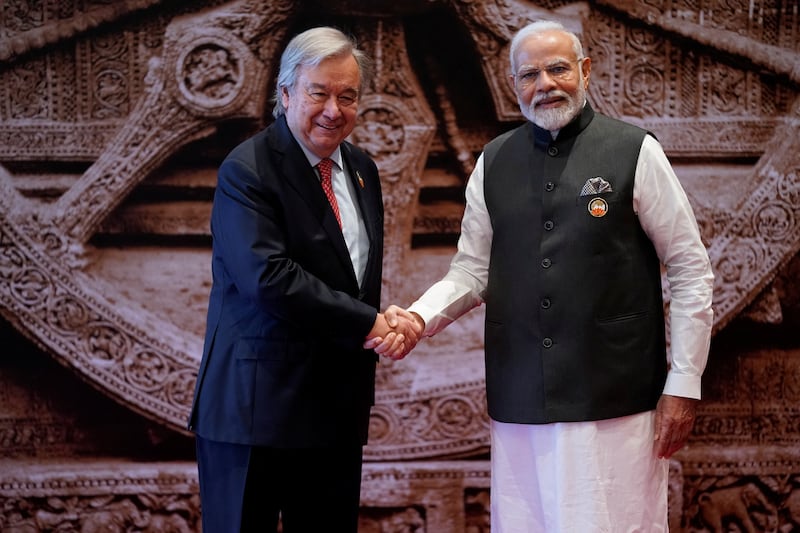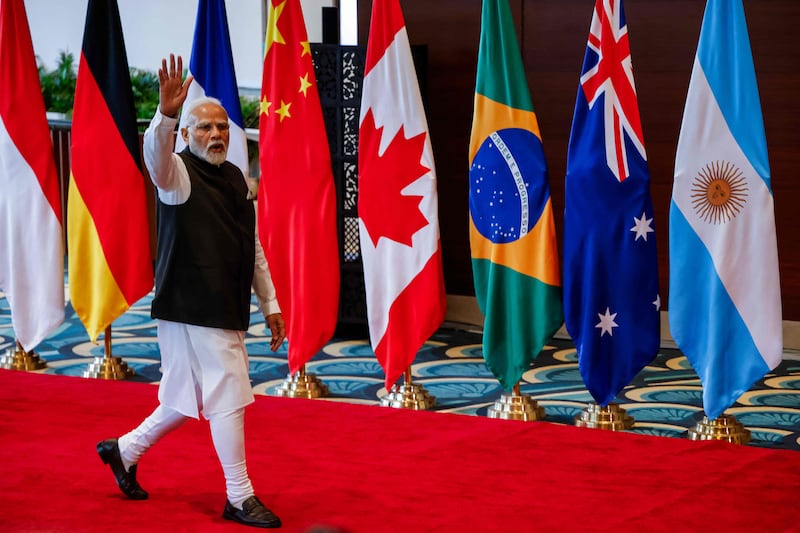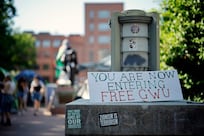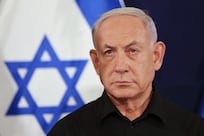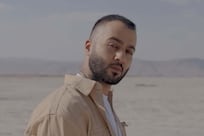While a significant breakthrough was made at the G20 summit in New Delhi, the week gone by has proved to be a challenging one for both Russia and Turkey.
On Monday, Russian President Vladimir Putin hosted Turkish President Recep Tayyip Erdogan in Sochi for talks to refloat the cancelled grain deal involving Ukraine. But the leaders failed to reach an agreement that would have allowed the resumption of Ukrainian grain shipments and eased food prices around the world.
The impact of this setback on the war in Ukraine and the frozen conflict in Syria is yet uncertain.
The rhythm of alliances today follows the tempo of the war in Eastern Europe, which appears to have dislodged Russia from the ranks of the major powers that also include the US and China.
Washington has redoubled efforts to push Moscow to the margins, the latest example of which has been its announcement of a $600 million aid package for Ukraine to boost its counteroffensive.
It is, meanwhile, actively engaged in diplomatic efforts with key Asian countries, including Japan, South Korea and Vietnam, as part of its attempts to counter China’s influence in the continent. On Sunday, US President Joe Biden arrived in Hanoi to meet Vietnam’s paramount leader, Nguyen Phu Trong, in his bid to boost ties with the South-East Asian country.
As in the case of the recently concluded Brics summit in Johannesburg, South Africa, Mr Putin was forced to skip the G20 summit in India. And with another world leader, Chinese President Xi Jinping, also choosing to stay away from New Delhi, Mr Biden took centre stage at the summit, helping to secure a landmark deal on Saturday.
A multibillion-dollar India-Middle East-Europe Economic Corridor was announced, which includes the UAE, Saudi Arabia, India, Jordan, Israel and the EU, and is expected to enhance connectivity and integration between participating countries. In the coming weeks and months, details regarding the creation of a railway network linking India to the maritime routes in the Middle East, as well as connecting the Arab Gulf countries and the Levant, will be ironed out.
Mr Biden specifically thanked President Sheikh Mohamed for his key role in securing the deal. “I do want to say thank you, thank you, thank you,” he said at an event to unveil the initiative. “I don’t think we’d be here without you.”
Such important and pioneering breakthroughs are what New Delhi sought to reveal at the summit, where disputes were expected to intensify due to differing positions between the West and the Brics countries leaning more towards “non-alignment” between the US and China, as well as between Nato member states and Russia.
Turkey has attempted to play a distinctive role within Nato, of which it is a member, and in which it sees itself as enjoying a unique position as both a Middle Eastern and a European country.
Mr Erdogan succeeded in recent times in solidifying Ankara’s importance in Nato and acted as a mediator between Russia and Ukraine and secured the grain deal last year, until Russia decided to not renew it unless western countries provided financial guarantees.
Unfortunately, neither side could secure the old deal, or a new one, on Monday.
There have been misgivings between the two countries in recent months. There was, for instance, disappointment in Moscow in April when Ankara struck an agreement with Kyiv to supply Bayraktar TB2 armed drones to it. Turkey’s realignment within the Nato alliance has also not sit well with the Kremlin.
Antony Blinken meets Volodymyr Zelenskyy in Ukraine
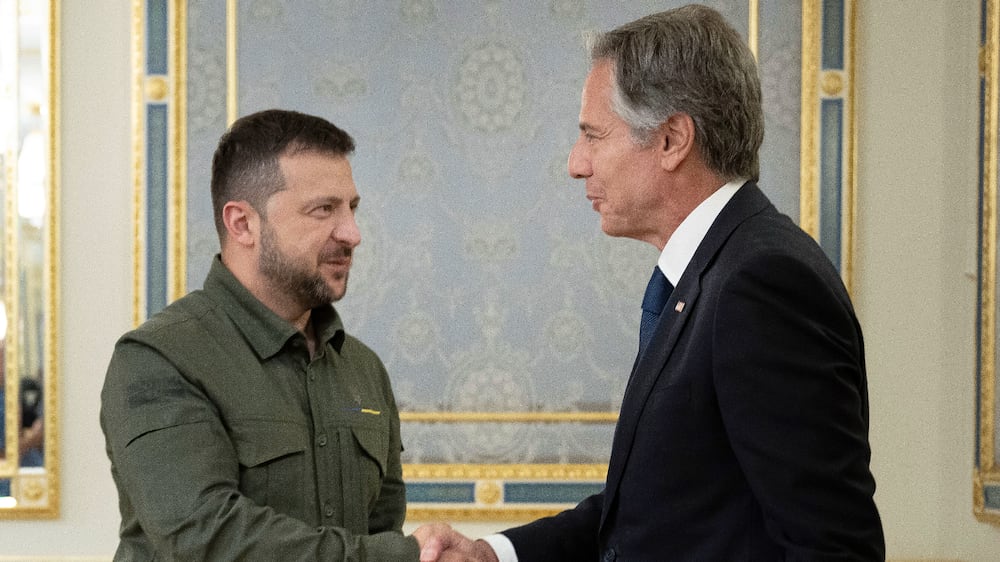
In Sochi, agreements over other issues were, therefore, hard to secure. These included oil pipeline projects, initially intended to somewhat replace the German Nord Stream 2, the Russian-financed nuclear reactor project in Turkey, and the conflict in Syria.
Moscow has been disconcerted by Ankara’s support for Ukraine, with the Turkish government continuing to not recognise the Russian annexation of Crimea. The Kremlin has also sought Ankara’s normalisation of ties, and engagement, with the Assad regime, with a view to resolve the Syrian refugee crisis and other issues.
There are several reasons for the restlessness being felt in Russian diplomacy today, especially amid a series of disappointing summits for Russia, which risks exacerbating its international isolation. The next stop for the leadership in Moscow is the UN General Assembly later this month, where it intends to test the loyalties of many of its old friends, and not just Turkey.
As for Ankara, it faces challenges on the domestic front. The collapse in the Turkish lira’s value is worrying, as is the crisis of the approximately four million Syrian refugees still living in the country. That the talks in Sochi did not yield the desired results will add to the list of troubles that the leadership in Turkey has to grapple with.
Syria will be a significant arena reflecting the consequences of Sochi. How this will precisely pan out, only time will tell.
